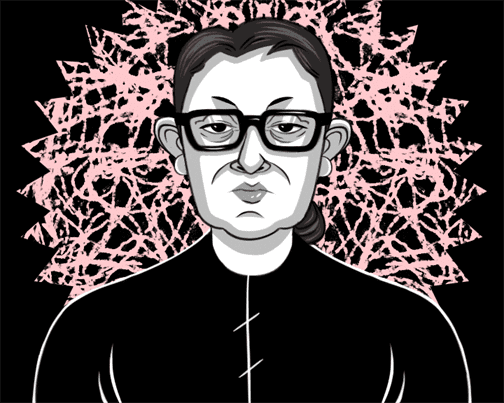Over the weekend, Supreme Court Justice Ruth Bader Ginsburg died at the age of 87, leaving an open spot on the bench for the first time since Justice Anthony Scalia’s death in 2016. For Americans everywhere, her death has sent shockwaves throughout the country and has left us with feelings of grief and hopelessness.
It is natural to grieve the death of such an influential figure in American history. Because of Ginsburg, women were recognized by the law as having the same rights as men. Not only that, but her fight for women’s equality made discrimination on the basis of sex illegal.
Being able to sign a mortgage without a man, owning a bank account without a male cosigner and having a job regardless of your gender or maternal status can all be attributed to Ginsburg’s dedicated career. But despite these monumental accomplishments, which are undoubtedly deserving of praise, the way in which many are grieving Ginsburg as a mythical American hero is problematic.
Like any human being, Ginsburg had serious flaws within her legal career both before and after becoming a United States Supreme Court justice. Her controversial rulings on the rights of indigenous people left many Americans feeling that for their communities, Ginsburg was not their hero.
This stark clash of opinions has created a culture of treating her death as the final straw for our country. If one woman’s death results in the possible demise of the entire United States, then quite frankly I’m not sure if our country would have even made it this far.
Government figures, as large as the media and popular culture may portray them, are not the sole reason our country sinks or swims.
This phenomenon of treating government figures like superheroes isn’t unique to Ginsburg. Other modern politicians like Alexandra Ocasio-Cortez and President Donald Trump find themselves in the same glorifying spotlight that often negates their political wrongdoings no matter how large they may be.
We must remember that a seat as a Supreme Court justice is a lifelong position, often allowing for newly appointed justices to serve almost half their lifetime ruling on matters of the United States Constitution. They are appointed by the president and voted on by members of the Senate without ever being agreed upon by citizens of the United States.
While I’m not arguing for a Supreme Court popular vote, it is concerning to me that anyone should worship a person in a position they never directly elected.
A singular person who holds power from the time they are appointed until the time they die cannot possibly be also responsible for the total prosperity of the people they represent. Additionally, their eventual deaths cannot leave the entire country without any hope for the future.
I do not believe Ginsburg’s death will be the nail in the coffin for America. It is saddening for sure, but it will not be the undoing of everything she fought for and everything still being fought for today.
Instead of placing the entire weight and success of the country on a position that feels reminiscent of lifelong monarchies gone by, Americans should treat Ginsburg’s death as the tragedy that it is, but nothing more. Her death was surely one felt by the entire country, but the sun will still rise and the government will still travel forward toward a new election and an eventual new Supreme Court justice.
If we fall into the trap of making our paid government officials fill the place of superheroes in our lives, we will fail to recognize they are just as imperfect as you and me. Instead, we must recognize both their successes and failures and not allow the media and popular culture to make them larger than life.
We can mourn Ginsburg and feel her loss within our justice system, but we cannot let her death be the scapegoat for all future failures of our government.
During her life, Ginsburg was a champion for women’s legal rights and made history in her appointment to the U.S. Supreme Court bench. Now in the wake of her death, may her memory be a blessing and her achievements and failures be a lesson to all.



